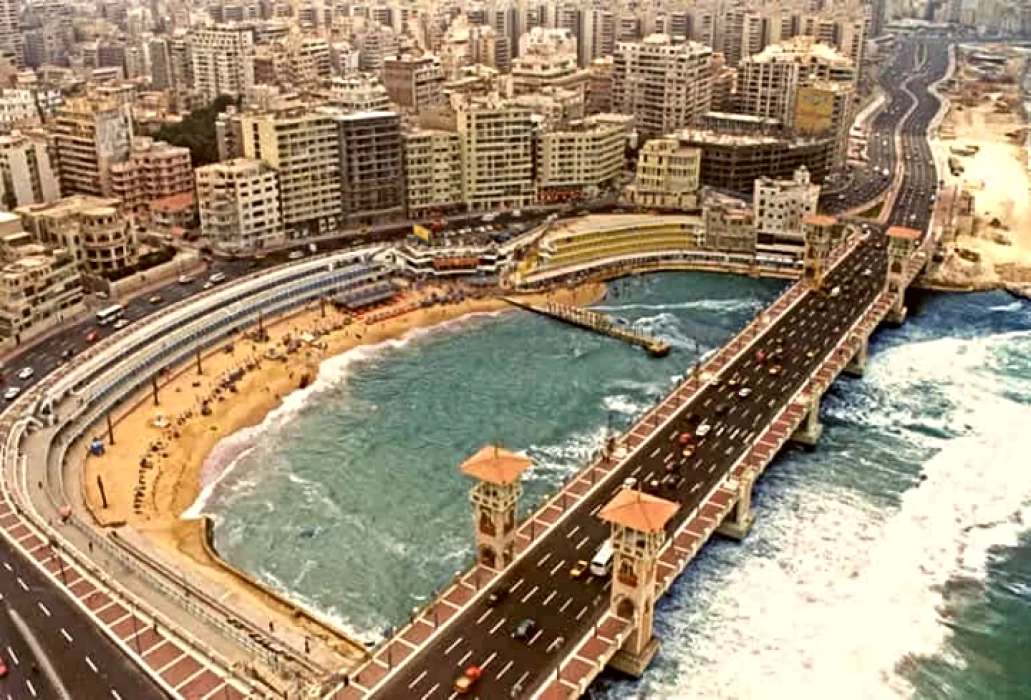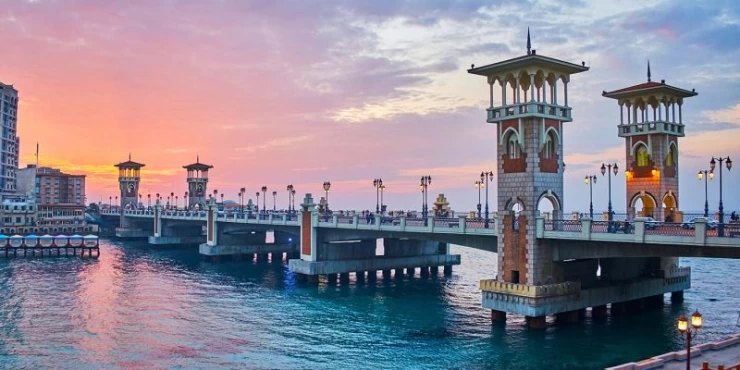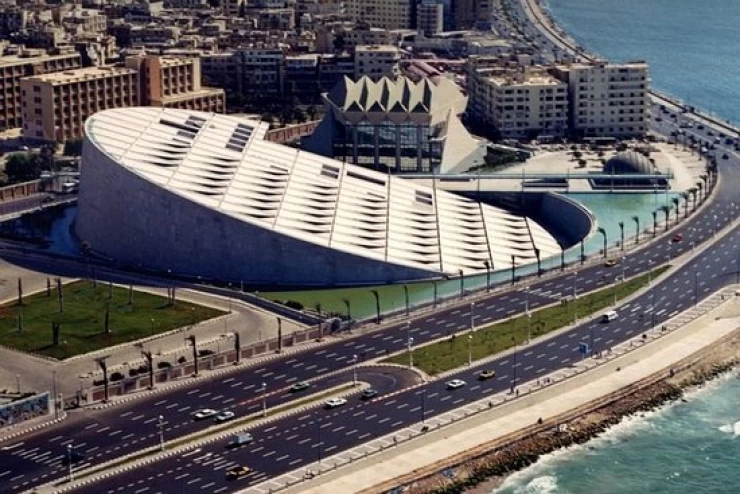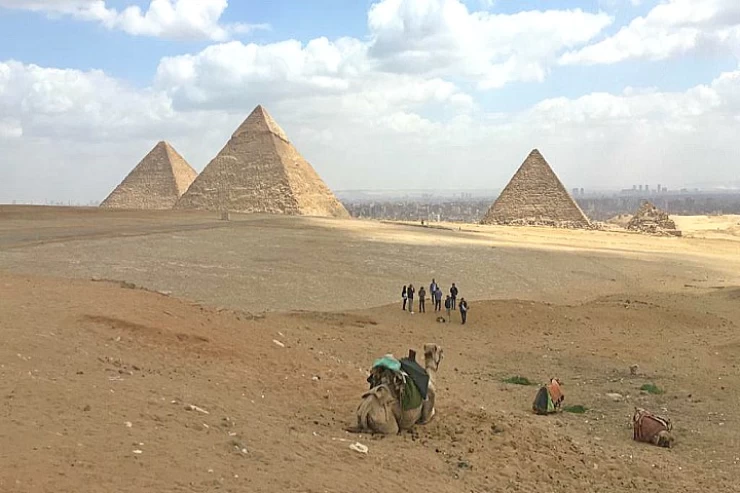
City of Alexandria | Alexandria History
Alexandria history
On the eastern part of the Mediterranean Sea, on ruins of the ancient Egyptian city of Ra Kadet or Raqoda, was founded a city named after Alexander the Great himself on April 7, 331 BC. In 323 B.C. Alexander died in Babylon, after which his generals vied with each other to gain control of the various regions of his vast empire.
The history of Egypt will tell us that the last great pharaoh was Ptolemy I Sotir (305-285 B.C. ), who ruled over a state, which he named after himself, the Ptolemaic State (332–30 B.C.). Alexandria, established in this era, served as the most prominent and the largest city in the eastern Mediterranean till the rise of Constantinople in Fifth Century AD.
Where is Alexandria located in Egypt
The Alexandria Governorate, located in the northern region of the Arab Republic of Egypt, presents itself in the shape of a right-angled triangle, with its base being the Mediterranean Sea and to the west of the West Nile right bifurcation known as the Rashid branch. To the North of it lies the Mediterranean Sea and to the south is Lake Mariout.
It was founded on a former island known as Pharos, where Alexander the Great ordered a passage to the coast to connect the island. On the tip of the island, the Lighthouse of Alexandria was built, and for more than seven centuries, it was one of the seven wonders of the Nea. From more than fifty kilometers away, a unique marble building from Rome could be seen, and on the other side, the legendary Library of Alexandria was built until it was destroyed by fire. Today, this area is only known as the location of the Lighthouse of Alexandria Al Qaitbay Castle and the new Library of Alexandria.
Library of alexandria
Diocletian's Colossus, Column, which is often mistakenly referred to as Pompey's Pillar (early 290 AD), is one of the major monuments existing in Alexandria today and is situated close to the ruins of the Serapeum, the main temple of Sarapis that was the national deity worshiped in Ancient Egypt during this period and got demolished during the reign of Byzantine Emperor Theodosius who outlawed paganism in 391 AD. Sadly, several Ka pillars and monumental structures in the city of Alexandria including the Great Lighthouse of Alexandria, the Library of Alexandria, and even the tomb of Alexander the Great, are no longer in existence.
According to the Ministry of Tourism and Antiquities website, one of Alexandria's most enduring monuments is the catacombs: One of the most important and iconic is the Roman-era Kom el-Shokafa Catacomb near the Serapeum, which contains Greek-style catacombs, triple burials, a shrine and a banquet area that was used during funerals, the scenes and inscriptions combine ancient Egyptian and Greek beliefs and artistic traditions.
One of the most beautiful non-funerary archaeological sites is the Kom el-Dikka area, which dates back to the late Roman and Byzantine periods and includes a Roman theatre, a bathhouse, a lecture hall, elite houses with mosaic decorations, and workshops.
The ancient city suffered greatly throughout its history, as it was destroyed by Queen Zenobia of Palmyra in 259 AD, and suffered several major earthquakes in late antiquity and the Middle Ages. However, the glory of Alexandria and many of its monuments remained in the memory and writings of Greek and Roman travellers. Recently, excavations of sunken monuments began to find monuments and statues in the Ptolemaic harbour and the coastal royal residence.
History of Alexandria in the Islamic period
Alexandria suffered from extreme poverty at the advent of Christianity and then was invaded by the Persians in 619 A.D. In 628 A.D., the Byzantine Empire put Christianity under the rule of Hercules until Caliph Umar came and took it in 641 A.D. The wars between Christians, Muslims and Byzantines continued until it officially fell under Islamic rule, and by 1323 A.D., Alexandria of Ptolemais had been destroyed by natural earthquakes.
History of Alexandria in the Renaissance
In 1805 AD, the Ottoman viceroy Muhammad Ali came and started building a 72-kilometre-long street at the entrance to Alexandria, in addition to establishing the Muhammadiyah Canal, introducing cotton to the region, and incentivising foreign merchants by giving them legal rights, such as trying them in their own courts, as these factors played a big role in making Alexandria a source of attraction for commerce. We also do not neglect to mention the opening of the railway in Cairo and the opening of the Suez Canal, as these factors played a major role in making Alexandria a source of attracting trade. In 1882 AD, Egypt fell under the British Mandate until 1992 AD, but this did not prevent it from continuing to prosper and develop.


















